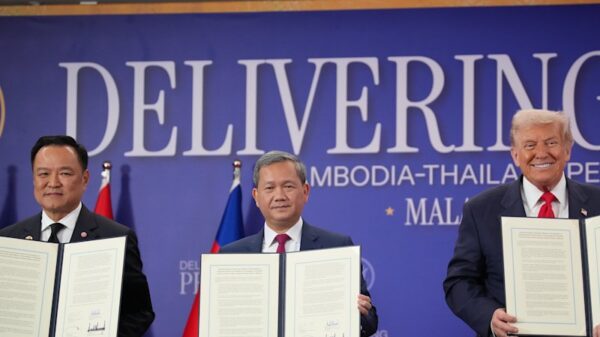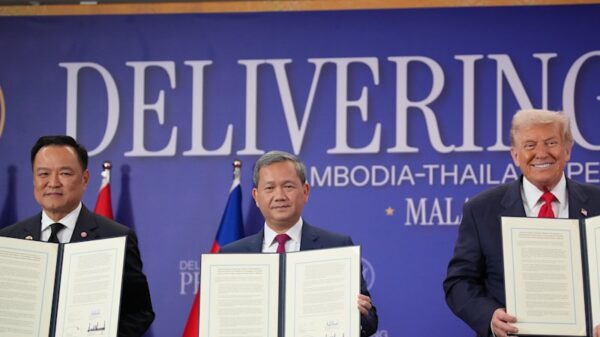BREAKING: Canadian Prime Minister Mark Carney has issued a cautious response to reports of a potential trade deal on steel and aluminium with the United States, asserting, “I wouldn’t overplay it.” This statement follows a Globe and Mail report suggesting the agreement could be signed by Carney and US President Donald Trump at the upcoming Asia-Pacific Economic Cooperation (APEC) summit in South Korea later this month.
Trade tensions have been escalating since Trump imposed tariffs on Canadian steel, aluminium, and cars earlier this year, prompting retaliatory measures from Canada. Sources indicate that discussions have progressed over the past weeks, yet Carney remains reserved about the outcome. “We are in ongoing discussions with the Americans, and I wouldn’t overplay it,” he told reporters in Ottawa earlier today.
The White House and US Commerce Department have yet to provide comments following these developments. According to insiders, the United States is currently unwilling to negotiate on Canadian cars or the long-targeted softwood lumber sector. Instead, Canada may need to agree to quotas on steel imports in exchange for a reduction in US tariffs, while critical minerals are reportedly off the negotiation table.
In a move to alleviate trade pressures on domestic businesses, Canada has offered tariff relief on certain steel and aluminium products imported from both the US and China, as reported by Reuters. This comes amid ongoing efforts to stabilize industries affected by the dual-front trade tensions.
Carney’s recent visit to Washington D.C. earlier this month yielded what he described as a “meeting of minds” with Trump regarding the future of the steel and aluminium sectors. As the APEC summit approaches, all eyes will be on the negotiations and their potential impact on Canadian industries and US-Canada relations.
Stay tuned for further updates as this story develops and watch for the outcomes of the impending summit. The implications of this trade deal could resonate across both nations, affecting markets and employment in key sectors.






























































